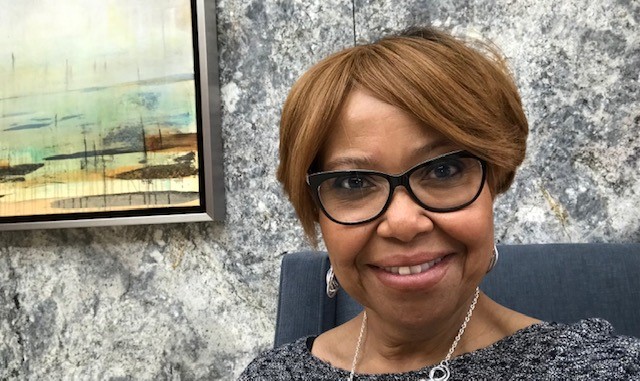Joining VA’s COVID-19 research volunteer list does not commit someone to sign up for a vaccine or treatment trial if he or she is selected. That distinction is very important to Dr. Sabrina Clark, who distinguishes her willingness to be part of the volunteer list from her willingness to volunteer for a study.
At the same time, Clark encourages all African Americans and other minorities to stay informed about developments related to COVID-19 vaccines and treatments.
“I am advocating for minorities, specifically African Americans, to stay engaged in the discussion, and that we gather the best of all available information to make the best decision we can for ourselves, our families, and our communities,” she says. “But I cannot support minorities volunteering for clinical trials without VA or the researchers having a level of understanding of why I would be reluctant to in the first place. I think there’s a fear about mentioning past issues like Tuskegee and Henrietta Lacks. But ignoring those events will undermine the efforts of this program. Ignoring current-day events will also undermine these efforts.”
Government-run study included unethical experiments on Black men
In the Tuskegee Syphilis Study, which began in 1932, U.S. government health workers were found to have carried out unethical and harmful experiments on 600 Black men who were tested for a treatment to syphilis. In 1951, Henrietta Lacks, an African American woman, was treated at The Johns Hopkins Hospital in Baltimore for an aggressive case of cervical cancer. Scientists shared samples of her cancerous tissue with other researchers without her knowledge or consent. Companies later used the tissue for key advancements in biological research without passing any money back to Lack’s family.
Clark, who is not a Veteran and has not volunteered for any vaccine trials in the past, is the director of VA’s Office of Voluntary Services. The office facilitates the ability to volunteer for activities on behalf of Veterans, caregivers, and families. It’s one of the largest centralized volunteer programs in the federal government.
Clark has a doctorate in positive neuropsychology, a branch of psychology that focuses on character strengths and behaviors that allow people to build a life of meaning and purpose. She’s an active member of the diversity and inclusion subcommittee of the National Research Advisory Council (NRAC), which was created in 1999 to provide external review of VA’s research mission. NRAC advises the VA secretary on research sponsored or conducted by the agency, including policies and programs of VA’s Office of Research and Development (ORD), and makes recommendations to ORD.
`Ensure that your questions are answered’
“My first message to anyone interested in a vaccine trial is to gather information and avoid immediately saying no,” Clark says. “Ensure that your questions are answered and that you feel like you have the education and the knowledge to participate. This is such a critical time in our history. For people who look like me, this is not an easy decision to make. It’s important that the researchers understand that we are not all alike. Everyone doesn’t come to this process from the same perspective.”
“However,” she adds, “I believe that participating in the research is the beginning of bringing everything together. There’s an importance here in that the research, like all research, is about gathering information. To the extent that we’re getting the right information from the right people, and we’re doing the right things with it and putting it in a context that allows good things to happen with a vaccine that allows us to feel safe in our communities again. That’s absolutely a good thing.”
How to sign up: Anyone over the age of 18 can volunteer to participate in VA research by signing up for the COVID-19 research volunteer list. If you are eligible to participate in a study, you will be contacted by a study coordinator who will answer your questions and help you decide if you wish to participate.
More Information
Click here to learn more about VA research.
Click here to learn more about VA COVID-19 trials and other research endeavors.
Topics in this story
More Stories
Summer Sports Clinic is a rehabilitative and educational sporting event for eligible Veterans with a range of disabilities.
Report examines the input of over 7,000 women Veterans: They are happier with VA health care than ever before.
Veterans and caregivers, you can help shape the future eligibility requirements for the VA Caregiver Support program.







Will my wife be able to get the shot on the day I do?
Information is available at https://www.va.gov/health-care/covid-19-vaccine/.
Will The serium be arriving soon? Robert Spratlin
Information is available at https://www.va.gov/health-care/covid-19-vaccine/.